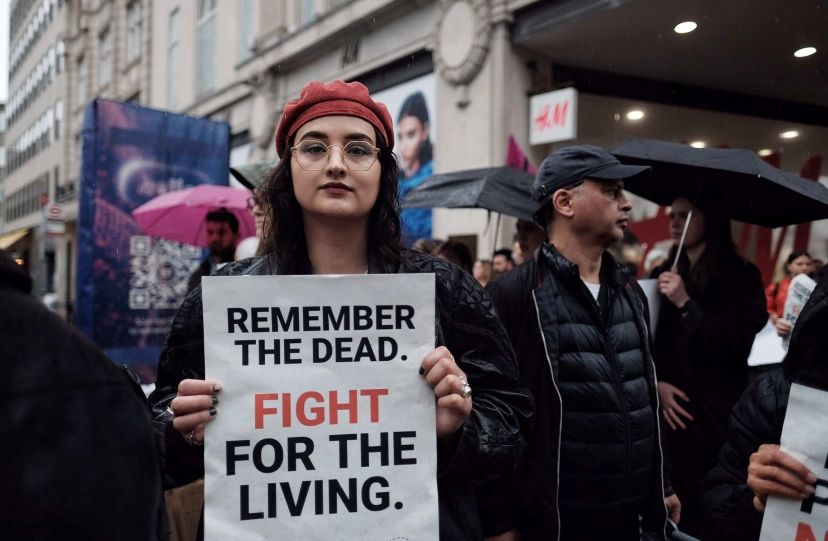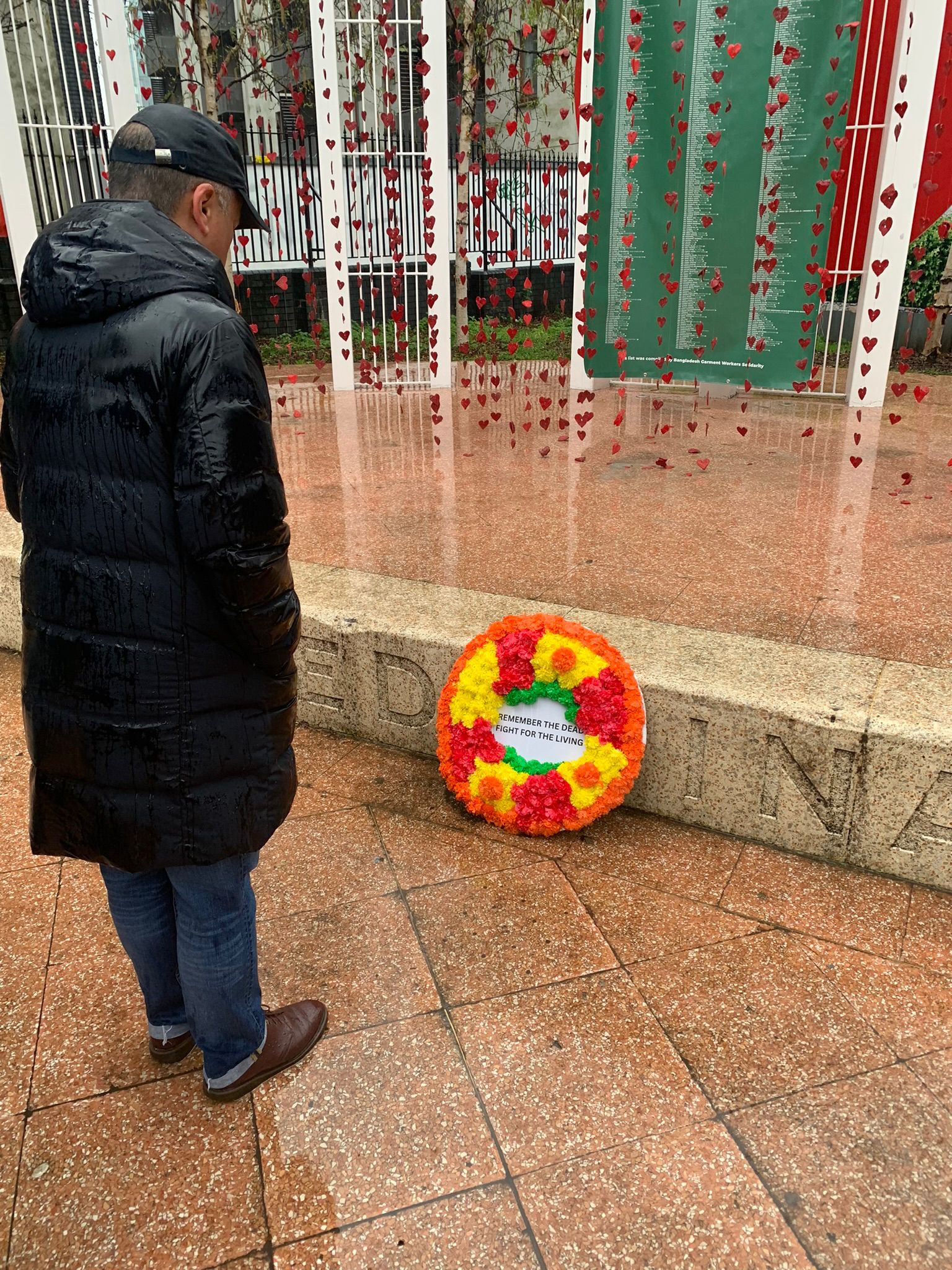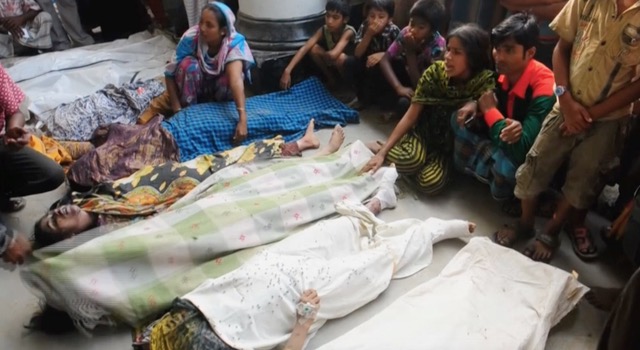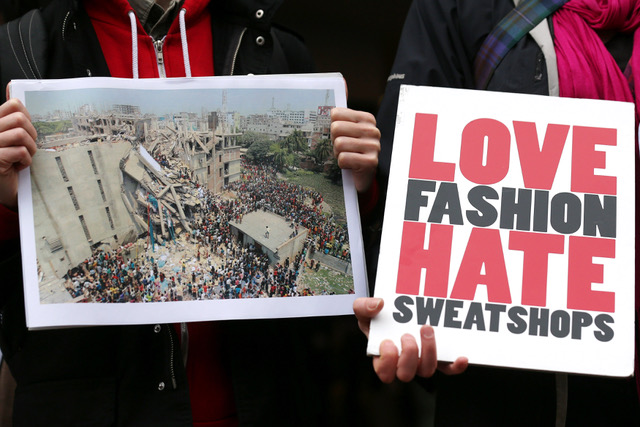The 10th Anniversary of the Rana Plaza disaster which occurred on 24th April 2013 and which claimed the lives of 1138 workers and caused serious injury to more than 2500 others, was marked in central London by a protest outside the flagship stores of several high street clothing retail brands on Monday. The protest was organised by pressure groups and trade union activists including ‘Labour Behind the Label’, ‘War on Want’, and ‘Made in Europe’, and made an attempt to establish a human chain around the Oxford St stores, but were hampered by the constant rain and somewhat overshadowed by the much bigger Extinction Rebellion Climate Change protest which was taking place a short distance away. Its purpose they said, was to expose the continued and widespread lack of transparency in the supply chain within the garment industry and to highlight the fact that the victims of the Rana Plaza Disaster who worked in a factory making cut-price clothes and designer outfits for Western retailers such as Primark, H&M , Benetton and Levis, are still waiting for justice a decade after the incident.

The following day, a memorial service was held and wreaths laid in the heart of the Bangladeshi community at the Shahid Minar, Altab Ali Park in Whitechapel, East London, to remember those who perished in the disaster.

At the time of the Plaza Disaster, the police had identified individuals who they deemed culpable for the deaths as a result of the collapse of the clothing factory in Savar, a sub-district near Dhaka, the capital of Bangladesh. Within days of the incident, 41 people were arrested including the owner Sahel Rana, both his parents and 36 others. In May 2015, the Criminal Investigations Department of the Police indicted Sahel and the 40 others for murder, later registered for hearing at the Dhaka District and Sessions Judges Court. Despite this, now ten years on, neither Sahel Rana or any other single person has had to face a courtroom trial for the killings. Constant appeals lodged by lawyers in the Supreme Court of Appeals, Bangladesh, have ensured that evidence in not put before the court and all those indicted remain at liberty.

There have been suggestions that Sahel Rana’s high profile within the Jubo League, the youth wing of Bangladesh Awami League, which has strong links to the ruling party, may have been behind the state’s failure to prosecute.
In an astonishing turn of events earlier this month in the weeks leading up to the tenth anniversary of the incident, the owner of the Plaza, Sahel Rana who was serving time for other crimes, was granted bail by the High Court and could soon join the other prospective defendants in the Plaza case as he walks free from jail.


















